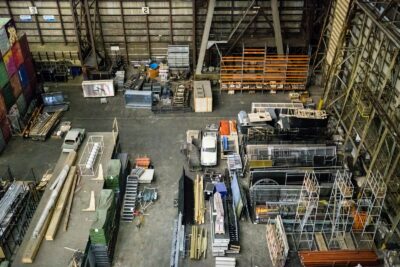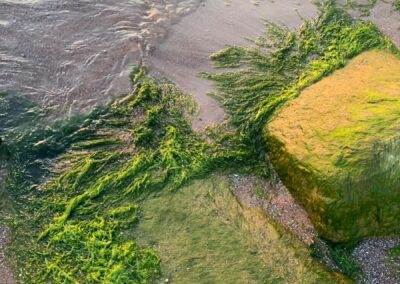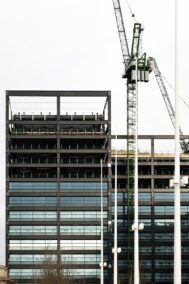Geological Storage Sites: Pioneering Carbon Capture Solutions
Advancements in Saudi Arabia and UAE
Geological storage sites for carbon dioxide are critical to the success of carbon capture and storage (CCS) technologies, which are essential for mitigating climate change and reducing greenhouse gas emissions. In regions like Saudi Arabia and the UAE, where sustainable development and environmental stewardship are prioritized, identifying and characterizing suitable geological storage sites is a top priority. Riyadh and Dubai are leading efforts to integrate these advanced solutions into their climate action plans, ensuring the safe and effective storage of captured carbon dioxide.
In Saudi Arabia, the identification and characterization of geological storage sites involve comprehensive geological surveys and assessments. These efforts are crucial for determining the suitability of various formations, such as deep saline aquifers and depleted oil and gas fields, for long-term carbon dioxide storage. For instance, in Riyadh, geologists and engineers collaborate to conduct detailed seismic surveys, core sampling, and reservoir modeling to evaluate potential storage sites. These activities ensure that the selected sites have the necessary geological characteristics to securely contain carbon dioxide, minimizing the risk of leakage and environmental impact.
Dubai, known for its innovative and forward-thinking approach, is also making significant strides in the identification and utilization of geological storage sites for carbon dioxide. The city leverages advanced technologies, such as remote sensing, geophysical imaging, and machine learning, to analyze and interpret subsurface data. This technological integration allows for precise mapping and characterization of potential storage sites, ensuring their suitability and safety. By incorporating these advanced techniques, Dubai can effectively manage its carbon emissions, contributing to its sustainability goals and positioning itself as a leader in climate action.
Leveraging AI and Blockchain for Enhanced Carbon Storage Management
The integration of Artificial Intelligence (AI) and Blockchain technology with geological storage site management is driving significant improvements in carbon capture and storage efforts. In both Saudi Arabia and the UAE, AI algorithms are used to optimize the selection and monitoring of storage sites, ensuring efficient and effective carbon dioxide containment. AI can analyze vast amounts of geological data, such as rock properties, pressure, and temperature, to predict the behavior of carbon dioxide in the subsurface and identify the most suitable storage sites.
In Riyadh, AI-powered systems can continuously monitor storage sites in real-time, using data from sensors and monitoring wells. These systems employ machine learning algorithms to detect any anomalies or changes in subsurface conditions that could indicate potential risks. By providing early warning of issues, AI enables proactive management and maintenance of storage sites, ensuring their long-term integrity and safety. This advanced approach enhances the reliability of carbon capture and storage operations, supporting Saudi Arabia’s commitment to reducing its carbon footprint.
Blockchain technology further enhances the reliability and transparency of carbon storage data. In Dubai, Blockchain is used to create secure and transparent records of all carbon capture and storage activities, ensuring that all information is tamper-proof and can be verified by multiple stakeholders. This transparency builds trust among stakeholders, including government agencies, private sector partners, and the community. Blockchain also facilitates seamless communication and coordination between different entities involved in carbon storage. By providing a decentralized and immutable ledger, Blockchain ensures that all parties have access to accurate and trustworthy data, improving coordination and efficiency in carbon capture and storage efforts.
Leadership and Management in Implementing Carbon Storage Solutions
Effective leadership and management are crucial for the successful implementation of geological storage sites for carbon dioxide. Business executives, mid-level managers, and entrepreneurs in Saudi Arabia and the UAE must prioritize the adoption of these advanced technologies to enhance their carbon management capabilities. Leaders who champion geological storage solutions demonstrate a commitment to leveraging cutting-edge solutions for sustainability and environmental protection.
Leadership involves fostering a culture of innovation and continuous improvement. In Riyadh, leaders can promote the adoption of geological storage technologies by encouraging collaboration between government agencies, private companies, and research institutions. This collaborative approach ensures that the solutions developed are tailored to the specific needs of the region, enhancing their effectiveness in real-world scenarios. In Dubai, management skills are essential for overseeing the deployment and maintenance of geological storage systems, ensuring that all components function optimally and deliver the desired outcomes.
Project management is also a key aspect of implementing geological storage solutions. Managers must oversee the entire lifecycle of the technology, from planning and development to deployment and maintenance. This involves coordinating with technology providers, conducting rigorous testing, and continuously monitoring performance. By effectively managing these projects, leaders in Saudi Arabia and the UAE can enhance their regions’ environmental resilience, protecting both people and property. This proactive approach to carbon management not only safeguards communities but also supports long-term business success by minimizing disruptions caused by environmental degradation.
Conclusion: The Future of Carbon Capture with Geological Storage
In conclusion, the identification and characterization of geological storage sites for carbon dioxide are essential for the success of carbon capture and storage initiatives. By providing safe and effective containment solutions, these technologies enable authorities in Saudi Arabia and the UAE to respond to climate challenges more effectively and efficiently. The integration of AI and Blockchain further enhances the capabilities and reliability of these systems, ensuring that data is accurate, transparent, and secure.
As Riyadh and Dubai continue to grow and modernize, the importance of advanced environmental management solutions cannot be overstated. Business executives, mid-level managers, and entrepreneurs must recognize the value of these technologies in enhancing sustainability and resilience. By championing the implementation of geological storage sites for carbon dioxide, they demonstrate leadership and a commitment to leveraging cutting-edge solutions for the well-being of their communities.
Ultimately, the adoption of geological storage sites for carbon dioxide sets a precedent for other regions to follow. By leveraging advanced technology and fostering a culture of innovation, Saudi Arabia and the UAE can lead the way in transforming carbon management practices and enhancing the quality of life for their citizens. Investing in these tools today will yield significant benefits, driving economic growth and ensuring long-term sustainability.
#GeologicalStorage #CarbonCapture #CO2Storage #RiyadhTech #DubaiInnovation #AIinEnvironmentalManagement #BlockchainInEnvironmentalManagement #LeadershipInTech























